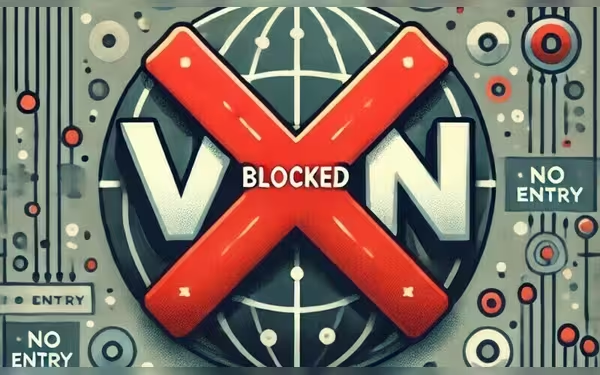Saturday, November 16, 2024 07:33 PM
Interior Ministry Seeks Block on VPNs Citing Terrorism Concerns
- Interior Ministry requests PTA to block illegal VPNs.
- VPNs allegedly used by terrorists for violent activities.
- CII declares VPN usage illegal under Sharia law.
 Image Credits: dawn
Image Credits: dawnInterior Ministry requests VPN blockage in Pakistan, citing terrorism and illegal content concerns, raising issues of internet freedom.
The ongoing debate surrounding the use of Virtual Private Networks (VPNs) in Pakistan has taken a significant turn as the Interior Ministry has formally requested the Pakistan Telecommunication Authority (PTA) to block what it terms "illegal VPNs". This request is based on claims that these VPNs are being exploited by terrorists to facilitate violent activities and to access content deemed inappropriate, such as pornographic and blasphemous material.
VPNs are tools that allow users to create a secure connection to another network over the Internet. They are widely used globally to access restricted content, ensuring privacy and security for users. However, in Pakistan, the narrative has shifted, with authorities expressing concerns over the misuse of these technologies. The Interior Ministry's letter to the PTA highlighted alarming trends, stating that VPNs are increasingly being used by terrorists to obscure their communications and conduct financial transactions.
In a recent statement, the PTA revealed that it has blocked over 100,000 URLs containing blasphemous content and nearly 850,000 pornographic websites. The authority also noted that there are approximately 20 million attempts made daily from within Pakistan to access pornographic sites, which are blocked at the international gateway level. This crackdown on VPNs follows a disruption that rendered many VPN services dysfunctional across the country, leading to widespread complaints from users about restricted access and poor internet connectivity.
Digital rights activists have criticized the government's actions, arguing that the disruptions are an attempt to enforce strict censorship and surveillance over citizens. The PTA, however, has dismissed these claims, attributing the issues to a "technical glitch" and urging users to register their VPNs to avoid further complications.
Adding to the complexity of the situation, the Council of Islamic Ideology (CII) has declared the use of VPNs "illegal". CII Chairman Allama Dr. Raghib Hussain Naeemi stated that using the internet or any software to access immoral or illegal activities is strictly prohibited under Sharia law. He emphasized that the government has the authority to counter actions that lead to evil, thus supporting the measures to block unauthorized VPNs.
While the PTA has introduced a streamlined VPN registration process to allow legitimate users to register their VPNs, the future of VPN usage in Pakistan remains uncertain. The authority claims that this framework will support uninterrupted access for IT companies and freelancers, reinforcing its commitment to the digital economy.
The government's stance on VPNs raises important questions about internet freedom and the balance between security and personal privacy. As authorities continue to navigate these complex issues, it is crucial for citizens to stay informed about their rights and the implications of such regulations. The ongoing developments in this area will undoubtedly shape the future of internet usage in Pakistan, making it essential for users to understand the potential impact on their online activities.













